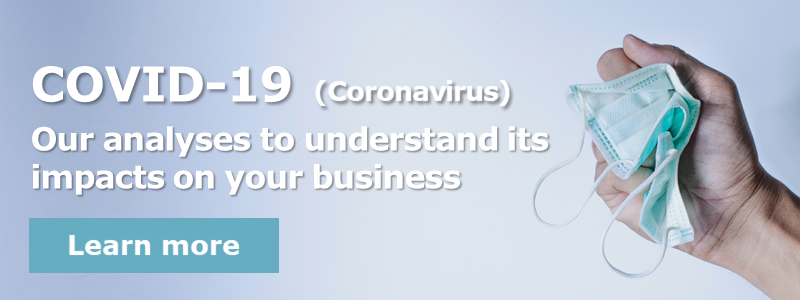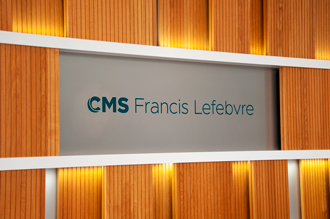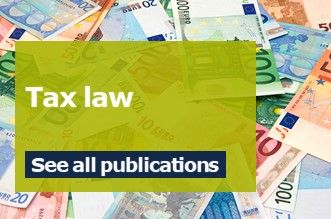The Government announced in late March 2020 that some companies applying for the postponement of tax payment deadlines should commit not to distribute dividends. According to an FAQ posted online on April 2, 2020, large companies seeking to postpone tax and social security payment deadlines or apply for a government-guaranteed loan must undertake not to pay dividends in 2020 to their shareholders in France or abroad and not to buy back shares during the year 2020. Such commitment is known as the "Liability commitment for large companies benefiting from cash support measures".
We have already outlined which operations are covered by this commitment and the penalties applicable to companies that fail to fulfil this commitment or comply therewith. ( Related readings : Covid-19: Postponement of Tax Deadlines )
Let us take a closer look into the companies concerned by this measure, the scope of which is potentially very broad.
The FAQs of the 2nd of April indicated that the large companies concerned by this commitment are either an independent company or a group of several related entities which employ at least 5,000 employees or have a consolidated turnover of more than €1.5 billion in France in the last financial year. It is specified that "the definition of the group may be taken with reference to the definition used as part of the calculation of the Contribution based on the value added produced (CVAE) (Article 1586 quater, I a of the CGI) or as part of tax integration (Article 223 A of the CGI)".
Although these two definitions of a group differ widely, a company which considers that it is not subject to this commitment under the definition of a group of companies under French tax integration may nevertheless have to comply with it if the criteria based on the number of employees or turnover, as described above, are met at the level of the economic group within the meaning of Article 1586 quater, I a of the French General Tax Code with regard to the CVAE.
In order to determine the effective tax rate for the CVAE, this Article lays out that " When a company, regardless of its income tax system, the place of establishment, the capital structure and the income tax scheme applicable to the companies which own it, satisfies the conditions set out in I of Article 223a for qualifying as a member of a group, the turnover to be taken into account for the purposes of I of this Article shall be the sum of its turnover and the turnover of undertakings which satisfy the same conditions for qualifying as members of the same group.
The first paragraph of the present Article Ia shall apply even where the undertakings mentioned therein do not belong to a group as described in Articles 223a or 223a(a).
The first paragraph referred to above does not apply where the sum of the turnover indicated in that paragraph is below EUR 7,630,000. “
If the criteria laid down in Article 1586 quater, I a of the General Tax Code are taken up separately, one can quickly appreciate that the scope of the economic group as defined by this article is much broader than that of the integrated group.
The holding rate used to define the economic group is the same as that used for integrated groups.
For the purpose of determining the effective rate of CVAE - and thus potentially for the purpose of determining whether the undertaking is concerned by this commitment - all undertakings which meet the conditions for ownership laid down in Article 223 A, I of the General Tax Code must consolidate their turnover. The reference date for assessing whether a company is a member of a group is, in principle, January 1 of the relevant taxation year. In view of the reference to Article 223 A, I of the General Tax Code, the consolidation provision are therefore applicable where an undertaking holds at least 95 % of the capital of another undertaking on a continuous basis throughout the financial year, directly or indirectly via undertakings which satisfy the same holding conditions, or when undertakings are under the joint ownership of another undertaking which holds continuously during the financial year at least 95% of their capital, directly or indirectly through undertakings held by this other undertaking meeting the same conditions (BOI-CVAE-LIQ-10 No. 73).
Any further parallels with groups under French tax integration end there.
Restrictions which exclude certain undertakings in the integrated group are not applicable to the economic group
Indeed, as far as the provisions for the consolidation of turnover with regard to the CVAE are concerned, as long as the minimum 95% holding rate is met, it is irrelevant whether the undertakings have different starting and closing dates for the financial year.
The corporate income tax scheme is also irrelevant. For the purposes of determining the effective tax rate on the CVAE, the economic group therefore includes not only companies subject to corporation tax under ordinary law, but also companies which are fully or partially exempted from corporate income tax and partnerships which are not liable for corporation tax. It should be noted, however, that EIGs or joint ventures have no capital requirement and thus are not eligible to benefit from the CVAE group rate mechanism.
Although the French tax authorities apply the group rate mechanism to EIGs and JVs, a group rate should only be applied when such structures may, as parent company, hold more than 95% of the company's capital (BOI-CVAE-LIQ-10 No. 72).
Another major difference with groups of companies under French tax integration consists in the fact that the turnover consolidation measure applies to all companies meeting the condition of holding at least 95% of the capital, regardless of the place of establishment, the capital structure and the tax scheme of the companies which hold them. This means, in particular, that the turnover of French undertakings held through foreign undertakings established outside France, qualified as an intermediate company, foreign company or non-resident parent entity within the meaning of Article 223 A, I of the General Tax Code, should be consolidated, even if those undertakings are not subject to a tax which is equivalent to corporation tax or if they are not located in a European Union Member State or in a State which is a party to the European Economic Area. However, the revenues of companies established outside France are not included in this consolidation mechanism (BOI-CVAE-LIQ-10 No. 74).
Thus, the turnover of French companies at least 95% owned directly or indirectly by a company established in the United States which also owns another company established in France under the same conditions may, for example, have to be consolidated for the purposes of the effective CVAE rate. On the other hand, we know that in the case of tax integration, if the parent or intermediary company is located in a third country, its French subsidiaries cannot qualify for inclusion in the tax consolidation.
Finally, pursuant to Article 1586 quater, I a of the General Tax Code, 95 % or more of the parent company's capital of an economic group may be held, either directly or indirectly, by another legal person subject to corporation tax under the conditions of ordinary law, whereas the provisions of Article 223 A of the General Tax Code prohibit any such holding of the parent company's capital.
So, tread with caution! Establishing that the salaried workforce of the tax group concerned is below 5,000 employees and that the sum of the turnover generated in France by the companies within the scope of consolidation does not exceed EUR 1.5 billion is not enough to be exempted from this liability commitment. Where appropriate, it is also necessary to ensure that the two above-mentioned thresholds are not exceeded at the level of the economic group within the meaning as defined under the CVAE calculation.
Insight: impacts of the Covid-19 outbreak
Our law firm provides you with legal assistance to understand all Covid-19 (Coronavirus) impacts on your business. Discover our special Insight below.
Find more about our law firm:
Our law firm is a leading international business law firm. Its deep roots, unique positioning and highly recognised expertise enables it to deliver innovative, high value-added solutions in tax, business, corporate and labour law.













